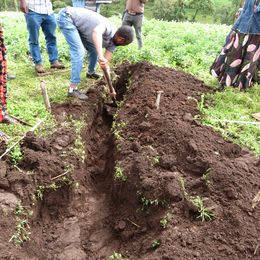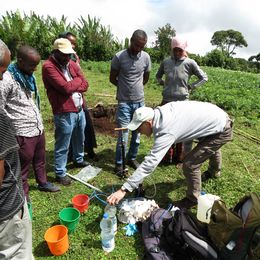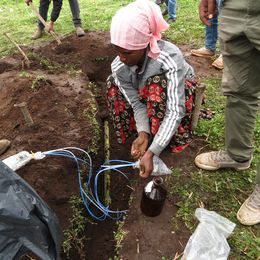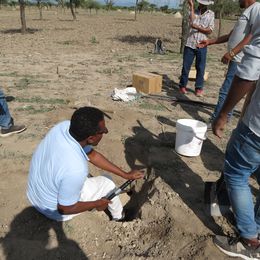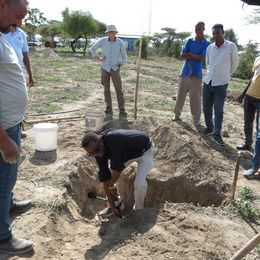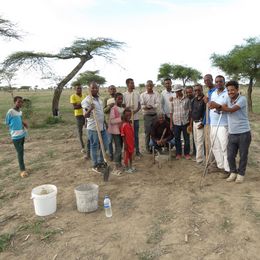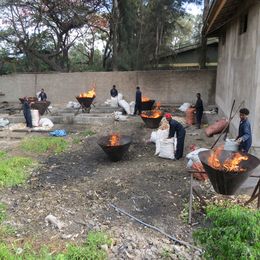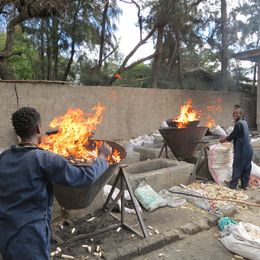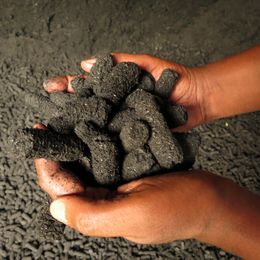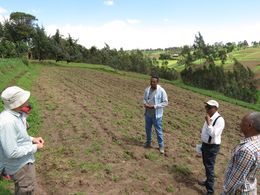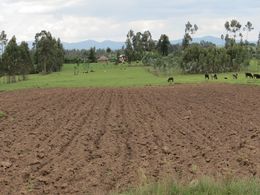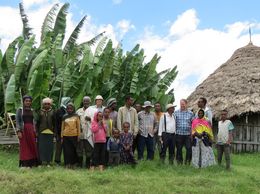Soil amelioration with biochar in Oromia
23.04.2024
Dr. Konrad Siegfried and Dr. Burkhard Wilske from the German Biomass Research Centre (DBFZ) visited the two villages of (1) Kofele near the city of Shashemene on the eastern fringe of the African Rift Valley, and (2) Dedo south of the city of Jimma in the western part of the country during a 10 days field trip in the Oromia region of Ethiopia. The two scientists have joined forces with their Ethiopian colleagues ─ namely Tilahun Abera (Director Batu Soil Research Centre, Batu) and Dr. Kefyalew Assefa (Director Natural Resources IQQO, Addis Ababa) at Batu, as well as Prof. Dr. Abebe Nigussi (College of Agriculture and Veterinary Medicine) and Prof. Dr. Alemayehu Regassa (Department of Natural Resource Management) at Jimma University ─ to start installation of suction cups for collection of soil water leachate from experimental fields in the two pilot regions of the ETH Soil project. Suction cups are to be installed prior to ploughing and application of biochar-based fertiliser in the further course of the experimental cropping trials in July 2024. Ethiopian scientists will apply similar technologies at 14 more test fields. Altogether, 25 test fields will be monitored and sampled for several soil and agronomic characteristics (e.g., soil organic carbon, soil pH, crop yield, etc.) to provide evidence of the amendment effects of biochar-based fertiliser.
Suction cup installation for leachate measurement in Dedo and Batu (Photos: Konrad Siegfried)
Biochar production near Batu (Photos: Konrad Siegfried)
Beyond soil monitoring, the team started gathering information and preliminary socio-economic data from local farmers. Understanding the farmers’ view point is a prerequisite for complete comprehension of how the newly developed biochar-based fertiliser (BBF) will fit into the farm routine and farm economy and can be widely implemented in the farming community of Ethiopia. With the help of both the Ethiopian colleagues and the accompanying very competent development agents (DAs), Burkhard Wilske and Konrad Siegfried were able to collect information in direct conversations with experienced local farmers. The farmers reported rising costs and - at times - shortage of fertiliser as well as pesticides. Using existing traditional knowledge of soil fertility combined with new and sustainable bio-based soil amendments such as BBF can help to stop soil degradation due to the decline of soil organic carbon, acidification and/or salinization and to recover sustainable soil fertility in Ethiopia.
Visiting fields in Kefele village (Photos: Konrad Siegfried)
